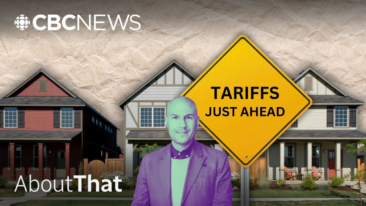Table of Contents
Understanding Downsizing: What It Means and Why It Matters
Downsizing your home is a significant decision that can impact your finances, lifestyle, and overall well-being. It refers to the process of moving from a larger property to a smaller, more manageable home that better fits your current needs. For many homeowners in Ontario, particularly retirees, empty nesters, and those seeking financial freedom, downsizing your home is a strategic and beneficial move.
Homeowners often choose to downsize for financial reasons. A smaller home typically means lower mortgage payments, reduced property taxes, and decreased utility costs. Maintaining a large house can become a financial burden, especially for those on a fixed income. By downsizing your home for retirement, you can free up home equity to supplement savings, travel, or invest in other priorities. Many people wonder if downsizing your home is a good idea, and in most cases, the financial and lifestyle benefits make it a worthwhile decision.
Beyond finances, there are practical and lifestyle benefits. A smaller home requires less maintenance, which can be a relief for those who struggle with household chores or yard work. Many people choose to downsize because they want a simplified lifestyle with fewer possessions, more efficiency, and a home that requires minimal upkeep. Additionally, downsizing your home can provide the opportunity to move closer to family, relocate to a more desirable neighborhood, or enjoy the amenities of an urban or retirement community.
While downsizing your home offers numerous benefits, it also presents challenges. Emotional attachment to a family home can make the process difficult. Moving to a new space means parting with cherished belongings, adjusting to a different environment, and facing logistical hurdles. However, with careful planning and the right mindset, downsizing your home can be a positive and liberating experience.
Signs That It’s Time to Downsize Your Home
Determining the right time for downsizing your home depends on several factors. If your house feels too large now that your children have moved out, you may be living in a space that no longer meets your needs. An oversized home often leads to higher maintenance costs and unnecessary expenses. If a significant portion of your income is spent on mortgage payments, property taxes, and utility bills, downsizing your home can provide financial relief and improve your quality of life.
Physical challenges can also signal that it’s time to downsize. If you find yourself struggling with routine maintenance, such as cleaning large rooms, repairing the roof, or mowing a big lawn, a smaller property could be a more practical choice. Health and mobility concerns also play a role. If navigating stairs has become difficult or if your home lacks accessibility features, downsizing your home to a single-story house or condo could enhance your safety and comfort. If you are considering how to downsize your home for retirement, evaluating these factors is crucial.
The Biggest Benefits of Downsizing Your Home
Financial Advantages
One of the primary reasons homeowners choose downsizing your home is the potential for significant cost savings. Smaller homes typically come with reduced mortgage payments or the possibility of living mortgage-free if you use the equity from selling a larger house. Property taxes and utility bills are generally lower, helping homeowners manage their expenses more effectively.
By downsizing your home, you can free up funds to invest in your future. Whether you want to travel, support your children financially, or secure a comfortable retirement, having additional savings can provide peace of mind. With less money tied up in housing costs, you can prioritize experiences, investments, and personal goals. The benefits of downsizing in retirement go beyond just saving money; they also provide a sense of security and independence.
Lifestyle Enhancements
Aside from financial benefits, downsizing your home can lead to a more enjoyable and stress-free lifestyle. Maintaining a large home can be time-consuming and physically demanding. A smaller space is easier to clean, maintain, and furnish, giving you more freedom to focus on hobbies, social activities, and relaxation.
Moving to a smaller home also presents an opportunity to relocate to a more desirable location. Many downsizers opt for homes in walkable communities, near family members, or in areas with better healthcare and recreational options. Whether you choose an urban condo, a charming bungalow, or a retirement village, downsizing your home allows you to design a living situation that suits your evolving needs. For those seeking guidance, a guide to downsizing your home can be extremely helpful in ensuring a smooth transition.
Overcoming the Challenges of Downsizing
Although downsizing your home has many advantages, it can be emotionally and logistically challenging. Leaving behind a family home where you’ve created memories can be difficult. The process of sorting through years of belongings can be overwhelming, but it’s essential to focus on what truly matters. Keeping sentimental items while decluttering unnecessary possessions can make the transition easier.
Finding the right home in a competitive real estate market is another hurdle. The demand for smaller homes and condos in desirable areas can make the search challenging. Partnering with an experienced real estate agent can help you navigate the market and find a property that meets your needs.
Financially, moving costs should be considered. Realtor commissions, legal fees, moving services, and potential renovations all add up. While downsizing your home generally leads to long-term savings, budgeting for the short-term expenses of selling and moving is important.
3 Steps to Downsize the Smart Way
Step 1: Know Your Home’s True Value
The first thing you’ll want to do is find out how much your home is worth – not what you think it’s worth, but what buyers are willing to pay for it. An easy way to do this is to use Valery’s AI-driven home evaluation tool. Type in your address and our AI analyzes thousands of recent sales to give you a true market value. It even shows you the best time to sell your home based on your neighbourhood. There’s lots of other features for you to analyze, including neighbourhood demographics and average days it takes to sell a home in your area.
Step 2: Find Your Next Home
Let’s say you want to find a condo within walking distance to your loved ones or somewhere that fits your lifestyle perfectly – without the hassle of endless searching through listings. Instead of going through hundreds of homes for sale and toggling with filters, just chat with Valery AI by clicking on her photo on the bottom right of our website. Simply tell her what you want and she’ll reply with the answers you need.
Step 3: Create a Data-Driven Action Plan
How do you handle each step of the process? And what’s the smartest way to make this transition? This is where Valery AI’s Action Plan comes in. All you have to do is enter your phone number and Valery AI will give you a call back. It’s a 4 minute phone call where you’ll receive a personalized roadmap with a clear plan on how to downsize.
Ready to Downsize?
Deciding to downsize your home is a significant milestone, but you don’t have to navigate it alone. With expert insights and a data-driven approach, Valery ensures that downsizing your home is a seamless process.
Start your journey by chatting with Valery AI, your trusted AI real estate companion, designed to make downsizing your home smarter and stress-free. Unlike traditional platforms that rush you into working with agents, Valery lets you explore, learn, and plan at your own pace—without pressure. Whether you’re just thinking about downsizing or ready to list, Valery ensures every step of your journey is clear, informed, and in your control.





